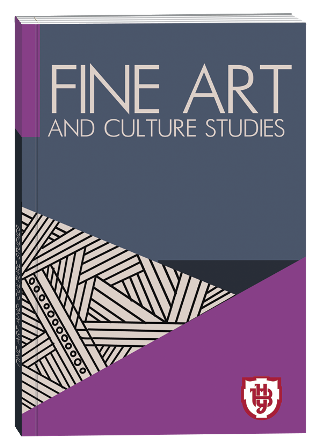TENDENCIES OF PSEUDO SCIENCE REPRESENTATION IN MODERN MASS CULTURE
DOI:
https://doi.org/10.32782/facs-2023-1-26Keywords:
mass culture, modern culture, pseudoscience, science, philosophy of culture, media, rationalityAbstract
The living environment of modern human has been largely transformed by science, and the results of scientific activity are widely present in the everyday activity of society. At the same time, science is extensive and dynamic, which leads to the need for its reduction to simpler forms that are on the border of cult, art, and traditional culture. One of these forms is pseudoscience, which is specific in its focus on replacing science. The aim of the article is to determine the essential tendencies in pseudoscience representation in the context of modern mass culture. A scientific novelty consists in the analysis of the pseudoscience inclusion into mass culture, based on its modern phenomena, the determination of trends in its representation, caused by the spread of screen media. In the conclusion, it is determined that pseudoscience arises as a reaction to the complexity and incomprehensibility of science to the general public and at the same time seeking to replace science in the search for rational knowledge. The main trends in its representation, which exist in mass culture, are described. Namely, the confirmation of already existing ideas, present outside science; development on the ready-made knowledge basis; increased attention to the unusual while neglecting the typical; an appeal to the sacred, at the same time – its profanation. Despite the fact that pseudoscience exists as an alternative to academic science or its denial, it relies on the authority of science, imitating its external features in the absence of scientific methodology, and develops outside the scientific community. This necessitates the popularization of science with the participation of public intellectuals as mediators between groups of society and forms of knowledge.
References
Guldentops, Guy (2020). “Nicolaus Ellenbog’s ‘Apologia for the Astrologers’: A Benedictine’s View on Astral Determinism”, Bulletin de Philosophie Médiévale, 62, pp. 251–334.
Hansson, Sven Ove (2018). “How connected are the major forms of irrationality? An analysis of pseudoscience, science denial, fact resistance and alternative facts”, Mètode Science Study Journal, 8, pp. 125–131.
Harding, Nick (2016). Urban Legends: The Folklore of the Modern World / Nick Harding. Oldcastle Books Ltd, 160 p.
Science and Pseudo-Science (2021) / Stanford Encyclopedia of Philosophy. URL: https://plato.stanford.edu/entries/pseudo-science (15.04.2023)
Буйських, Ю. (2012) Міфологічні уявлення в повсякденному житті сучасних українців: теоретико-методологічні аспекти вивчення. Народна творчість та етнологія. № 6. С. 64–72.
Гребенюк, А. В. (2019) Міф у контексті сучасної масової культури. Кваліфікаційна наукова праця на правах рукопису. дис. … канд. філос. наук : 09.00.04 – філософська антропологія, філософія культури. Київ, 220 с.
Єрмоленко, А. М. (2010) Соціальна етика та екологія. Гідність людини – шанування природи : монографія. К. : Лібра, 2010. 416 с.
Казаков, М. А. (2015) Феномен псевдонауки як проблема розвитку сучасного наукового пізнання : дис. … канд. філос. наук : 09.00.02 – діалектика та методологія пізнання. Одеса, 222 с.
Поппер, Карл. Філософський енциклопедичний словник. Київ Поппер, Карл : Абрис, 2002. С. 498–499.







